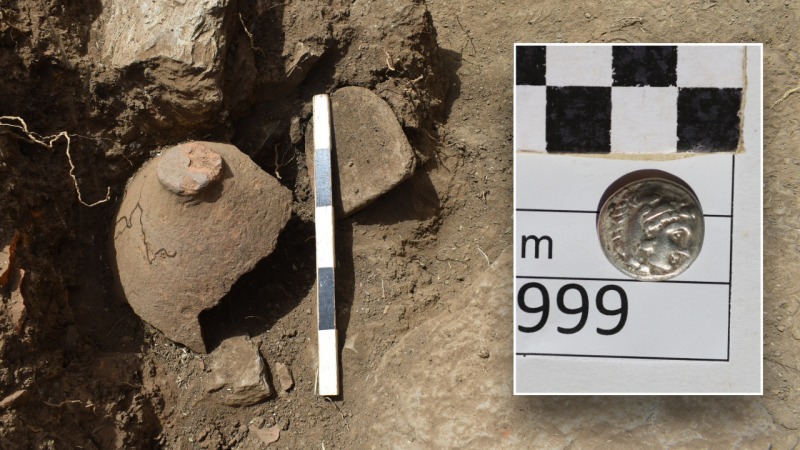
Archaeologists have made a groundbreaking discovery in North Macedonia, uncovering the remains of a lost city that may be Lyncus, the long-lost capital of the Kingdom of Lyncestis. This remarkable find, announced by California State Polytechnic University, Humboldt, on April 4th, is the result of collaborative excavation work near the village of Crnobuki, conducted in partnership with experts from Macedonia’s Institute and Museum in Bitola.
Professor Nick Angeloff, an archaeologist and anthropology professor at Cal Poly Humboldt, leads the team. He believes the evidence strongly suggests the site is indeed Lyncus, a city conquered by King Philip II of Macedon in 358 B.C. The significance of this discovery lies in its potential connection to a pivotal figure in history: Eurydice I of Macedon, the grandmother of Alexander the Great, who is believed to have been born and raised in Lyncus. This makes the find exceptionally rare and historically significant, as Lyncus, associated with Upper Macedonia, has never before been located.
The excavation has yielded a plethora of artifacts, further supporting the identification of the site. These include a coin depicting Alexander the Great, axes, game pieces, an oil lamp, and a small ceramic piece with a heart motif. Perhaps the most intriguing find is a clay theater ticket, a unique artifact specific to North Macedonia, which suggests the presence of a theater within the ancient city. LiDAR technology has been instrumental in revealing the extent of the city, revealing a complex infrastructure capable of supporting a population of approximately 10,000 at its peak.
Initially, historians believed the ruins at Gradishte dated back to the reign of King Philip V. However, the discovery of the Alexander the Great coin and other evidence has pushed the timeline back to the 4th century B.C., with indications of even earlier Bronze Age occupation. The team’s findings are rapidly evolving, with plans to return to North Macedonia in May and June for further excavations. Professor Angeloff emphasizes the vast potential for archaeological discoveries in this region, highlighting the opportunity to significantly expand our understanding of the Classical and Roman eras.
This incredible discovery not only sheds light on the Kingdom of Lyncestis and its capital but also offers a deeper connection to the lineage of one of history’s most celebrated figures, Alexander the Great. The ongoing excavations promise to unveil even more secrets from this ancient civilization, rewriting chapters in our understanding of Macedonian history.










